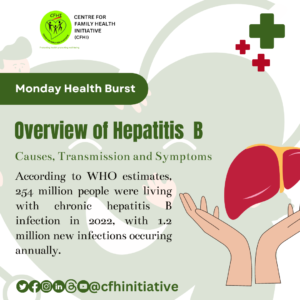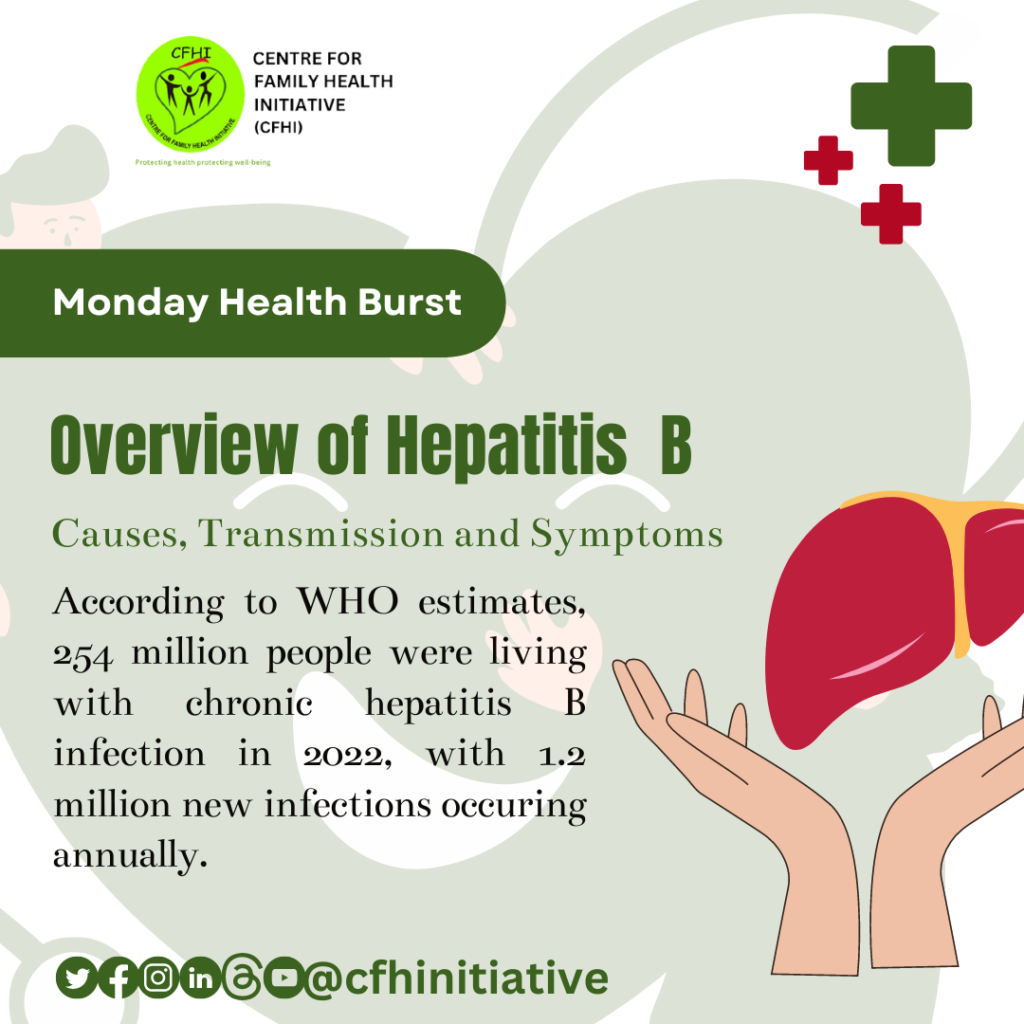Hepatitis B is a viral infection that attacks the liver and can cause both acute and chronic disease. The hepatitis B virus is highly infectious and can survive outside the body for at least seven days, maintaining its ability to infect. Despite the availability of effective vaccines, hepatitis B remains a major public health challenge.
According to WHO estimates, 254 million people were living with chronic hepatitis B infection in 2022, with 1.2 million new infections occurring annually.1
Hepatitis B is primarily transmitted through contact with infectious body fluids, such as blood, semen, and vaginal fluids. Common routes of transmission include:
- Mother to Child: The most common mode of transmission globally. If a mother is infected with HBV, the virus can be transmitted to the baby during childbirth.
- Sexual Contact: Unprotected sex with an infected partner can lead to transmission of the virus.
- Sharing Needles: Using contaminated needles or syringes, especially among intravenous drug users, is a significant risk factor.
- Blood Transfusions and Medical Procedures: Receiving blood products or undergoing medical procedures with non-sterile equipment can lead to infection.
- Household Transmission: Sharing personal items like razors or toothbrushes with an infected person can also spread the virus.
The symptoms of hepatitis B can vary from mild to severe and typically appear 1 to 4 months after exposure to the virus. They include:
- Fatigue
- Fever
- Loss of appetite
- Nausea and vomiting
- Abdominal pain, particularly near the liver
- Dark urine
- Clay-colored stools
- Joint pain
- Jaundice (yellowing of the skin and eyes)
In many cases, especially in children, hepatitis B may be asymptomatic, meaning the infected person shows no symptoms.
Over the past five years, CFHI’s hepatitis vaccination campaigns have reached over 5,000 individuals in Nigeria. CFHI joined the global VH Elimination efforts during the 2018 World Hepatitis Day (WHD) to ‘find the missing million.’ In Obi, Nasarawa state, a community with a high prevalence of Hepatitis B and C infections, over 150 people were tested for Hepatitis B and C, and more than 200 individuals received education on viral hepatitis. Also in 2022, CFHI collaborated with Kagini Primary Health Care Centre to commemorate World Hepatitis Day, 2022. Over 100 people were reached and educated about hepatitis and out of those tested, 95 were negative and 5 were positive.
Hepatitis B is a preventable but potentially life-threatening liver infection. Understanding its transmission routes, recognizing symptoms early, and practicing preventive measures are crucial in managing and reducing the spread of hepatitis B. Vaccination remains the most effective tool in preventing HBV infection.
Reference:
https://www.who.int/news-room/fact-sheets/detail/hepatitis-b




